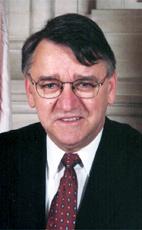To be recognized, to reach the top, in other words to succeed, every Acadian artist must pack up and move to Montreal. This reasoning is simplistic but not new. Outside Quebec, there is no salvation. We have heard that one before.
But what we had never heard is what the Bloc Quebecois leader added at the time. He said, in reference to Acadian artists that “they themselves were proof that it simply does not work outside Quebec”. Allow me to be sceptical as to the real intentions of the Bloc Quebecois in bringing this motion forward in the House.
Bloc Quebecois members are interested in our history or our existence to the extent that it serves their interests and their objective. They want people to believe that they are trying to correct the mistakes of the past, to shed light on a dark episode of our history. One would think that such an initiative would be made in consultation with those concerned, namely the Acadians. That is the least the Bloc Quebecois could do. But its logic does not work like that.
The Bloc Quebecois' logic is based on an out of date and disrespectful paternalism toward Canada's francophone and Acadian communities. Again, this is nothing new. In 1994, the member for Rimouski—Neigette-et-la Mitis, whose riding is close to Acadia, told the Fédération des communautés francophones et acadienne to mind its own business, because that organization had dared get involved in the debate on sovereignty. Now, they are telling us not only to mind our own business, but that they will meddle in our affairs, with or without our agreement. Let me make one thing very clear: Acadians are not the wards of the Bloc Quebecois. Acadians form a thriving community that is proud of its roots and that is looking to the future. We do not need a self-appointed guardian.
The average observer of the Canadian political landscape can easily be led to confuse the logic of the Bloc Quebecois with that of the Parti Quebecois. This is perfectly normal, since one complements the other. It is particularly easy to illustrate. Again, not so long ago, the PQ government refused to take part in the Year of La Francophonie in Canada. That was not long ago, that was in April 1999.
The Quebec minister responsible for Canadian intergovernmental affairs, Joseph Facal, explained his government's refusal by pointing out that “Quebec cannot, within the Canadian Francophonie, be put on the same level as francophone minorities in the rest of Canada”. So it all comes down to the statement by the Bloc leader: there are those who are saved, who live in Quebec, and those who are lost, who live outside of the promised land.
It is not easy for Acadians to listen to such remarks. Remarks inspired, as I said, by the offensive, insulting and hurtful paternalistic attitude of the Bloc Quebecois separatists. Who has forgotten the now famous words of the member for Rimouski—Neigette-et-la Mitis “They have been assimilated—the francophones—poof.”
The Acadians helped build this country. They worked hard and with determination for the conservation and protection of their culture and of their identity.
The Acadians have founded schools, colleges and universities. They have created playhouses, newspapers and publishing houses. They have made exceptional breakthroughs in the areas of culture, such as theatre, movies, visual arts, music and literature. They have given the world writers, poets, artists, dancers, musicians and singers. They have set up an impressive network of businesses and have created jobs. They did not wait for anyone to take them by the hand and decide for them.
The Acadian community in Canada is not comprised of one, but several communities spread out across the whole Atlantic region and elsewhere. In New Brunswick, the Acadians are concentrated in the southeast, the northeast and the northwest of the province, and there are also Acadian groups in Fredericton and Saint John.
In Nova Scotia, there are vibrant Acadian communities in St. Mary's Bay, on the southwest shore, on Madame Island and in the Chéticamp area, in Cape Breton.
In Prince Edward Island, the Acadians live in the Évangéline region. In Newfoundland, they are concentrated near Cape St. George, in St. John's and in Labrador City. Many also live on the Magdalen Islands, in Gaspé, in the Montreal area and in western Canada. All of these communities, some of them large and others not so large, illustrate the vitality of the Canadian people and of its two official languages.
The Acadians take part in the success and prosperity of our country. The Government of Canada recognizes their vitality and their essential contribution to Canadian society. They are part of the seven million people in Canada who speak, sing, write, work and live in French. These francophones are evidence of the vitality and the extraordinary determination to move ahead and to flourish in a continent where the majority is anglophone.
The English and French languages and the people who speak these languages have shaped Canada and helped define its identity. Canada's linguistic duality has its source in the very roots of our country. It is impossible to be interested in today's Canada without acknowledging the importance of these two languages and these two linguistic communities in Canadian society.
I will get back to the main subject of this debate. While Bloc Quebecois members claim the opposite, recent history has taught us that the interest this party shows for francophone and Acadian communities in Canada is always motivated by a hidden political agenda. This motion hides the real intentions of the mover, and we cannot accept it. In this sense, intellectual honesty demands that we refuse to support this motion and this is why I invite members of this House to oppose it.

